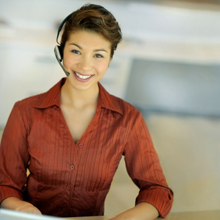| Royal City Drugs |
To Visit Online Pharmacy Click HERE ↓
Augmentin and Food: What Patients Need to Know
When to Take Augmentin: before or after Meals
For many patients prescribed Augmentin, the timing of the dose can influence both comfort and the success of the medication. This antibiotic is well absorbed regardless of food, but taking it at the start of a meal is widely recommended. Food acts as a buffer, reducing the likelihood of stomach upset—one of the more common side effects associated with Augmentin.
Choosing to eat beforehand can help keep nausea, cramping, or diarrhea at bay. It’s not just about comfort; taking Augmentin with food may actually help your body tolerate the medication better, making it easier to stick to your treatment plan and recover fully. Missing doses due to stomach issues can delay healing and create resistance.
| Best Time to Take | Benefit |
|---|---|
| Start of a meal | Reduces stomach upset, improves tolerability |
| Empty stomach | Potential for more side effects |
Foods That Help or Hinder Augmentin’s Effectiveness

When taking augmentin, the right food choices can make a real difference in how your body absorbs and tolerates the medication. Pairing your dose with a meal—especially one containing complex carbohydrates, like brown rice or whole-grain bread—can lessen stomach irritation and improve overall comfort. Foods rich in fiber and probiotics, such as yogurt with live cultures or kefir, may help support your gut health during your antibiotic course.
On the flip side, certain foods may undermine the benefits of augmentin or exacerbate side effects. Highly fatty meals, for example, can sometimes delay absorption, while excessive acidic foods such as citrus fruits might irritate an already sensitive stomach. Junk food and sugary snacks do little to help the body recover and can increase gastrointestinal discomfort.
Sticking to a balanced, nourishing diet increases your chances of responding well to augmentin and speeds up recovery. Hydration also plays a crucial role—adequate water helps flush toxins and minimizes unwanted effects. By considering both what to eat and what to avoid, patients give themselves the best chance for a smooth, effective treatment.
Dealing with Nausea: Smart Food Choices
Many people find that augmentin can cause an unsettled stomach, but the right foods may help ease discomfort. Try bland options like crackers, toast, or bananas, which are gentle and less likely to irritate your digestive system.
Eating small, frequent meals throughout the day rather than larger ones can further reduce nausea. Avoid spicy and fatty foods while on augmentin, as these can make symptoms worse. These smart eating choices can help you stick to your treatment plan with less discomfort.
Can Dairy Interfere with Your Antibiotics?

Many antibiotics interact poorly with dairy, but Augmentin is different. Unlike some medications, Augmentin doesn’t bind heavily to calcium in milk, so having a glass of milk or a bit of cheese with your medication won’t significantly reduce its effectiveness. That said, some people experience stomach upset when combining antibiotics with rich or heavy dairy products.
If you notice increased digestive discomfort, consider taking Augmentin with light foods instead. Yogurt, although dairy-based, contains probiotics that may even help maintain healthy gut bacteria during antibiotic therapy.
Augmentin, Alcohol, and Special Dietary Considerations
Mixing alcohol with augmentin might sound tempting, but this combination is best avoided. Alcohol doesn’t directly reduce augmentin's ability to fight infection, but it can intensify certain side effects—like vomiting, stomach pain, and dizziness—making your recovery harder. For those with special dietary needs, such as people managing diabetes or specific intolerances, it’s wise to monitor your intake of added sugars and fats, as these may interact with digestive comfort during antibiotic treatment.
Always aim for balanced meals that support your immune system. Those taking other medications or supplements should let their healthcare provider know, as interactions can sometimes occur. Staying hydrated is just as crucial, helping your body recover more efficiently while on augmentin.
| Safe Practices | Avoid |
|---|---|
| Stay hydrated | Alcohol |
| Consult about medication interactions | Unnecessary fatty foods |
| Eat nutritious meals | Skipping meals |
Tips for Easier Recovery While Taking Augmentin
Staying well-hydrated plays a critical role in supporting your body as it fights infection. Sip water regularly and avoid sugary or caffeinated drinks, which might increase dehydration risk. Adequate rest is just as important; try to prioritize sleep and listen to your body’s signals. Balanced meals, rich in fruits, vegetables, and lean proteins, can help maintain your strength and replenish vital nutrients.
Gentle physical activity, when tolerated, may also boost your energy and promote well-being. If your physician has prescribed probiotics, these can help restore gut flora altered by antibiotics. Finally, never skip doses or stop taking Augmentin early—even if you feel better—to ensure full recovery.






Email Us
Fill out all the fields below and press submit, a rep will contact you as soon as possible.

